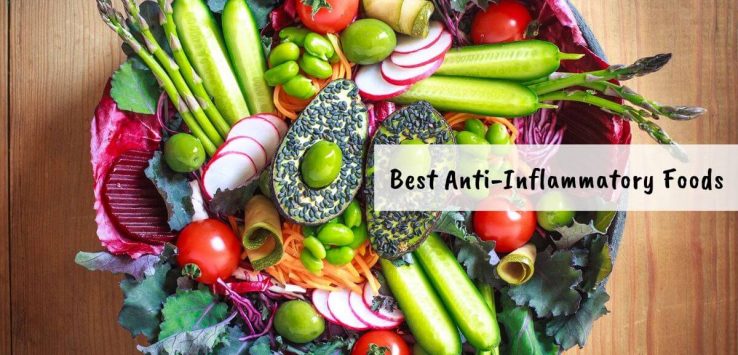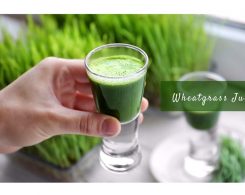When it comes to holistic health care, even gradual dietary additions prove sustainable as well as adaptive for the body. You don’t have to necessarily make any drastic adjustments. Similarly, anti-inflammatory foods help restore cellular health. These do not make you feel deprived of any nutrients or develop a need for artificial supplements. From acne to allergies, bloating and other visible or nonvisible signs, an anti-inflammatory diet helps cool the derangements of pitta.
What’s An Anti-Inflammatory Diet?
Rethink your everyday diet – does it include enough nutrients? Is your immune system strong enough? Does it help combat health issues? An anti-inflammatory diet is the one that contains essential vitamins, antioxidants, fiber, and omega-3 fatty acids to combat inflammation. When the metabolic fire flames too high or flares in the wrong areas, it results in inflammation. So, these foods reverse the effect.
Best Anti-Inflammatory Foods
1. Bok Choy
Bok choy is the versatile Chinese cabbage that’s among the best anti-inflammatory foods. It helps fight free radicals and loads your system with the required antioxidants.
Also Read: Why Cabbage Is Considered A Superfood In Ayurveda
2. Beets
Enriched with vitamin and mineral content, such anti-inflammatory foods form the basis of a perfect anti-inflammatory diet. The colors on your plate get bright and the body’s immunity goes high. Beetroot repairs your skin cells, helps curb magnesium as well as potassium deficiency along with improving your body’s nutrient absorption ability.
Also Read: 6 Magnesium-Rich Foods To Include In Your Daily Diet
3. Blueberries
Not just blueberries, but even strawberries and raspberries are high in flavonoids. They rank high on the list of best anti-inflammatory foods. Moreover, berries boost cognitive functioning, fight the symptoms of cancer, and lower the risk of respiratory ailments.
Also Read: Health Benefits Of Blueberries: Yummy Jewels Of Wholesomeness
4. Turmeric
It’s a potent anti-inflammatory spice that reduces oxidative stress, boosts immunity, helps you sleep better, lowers chronic inflammation, overcomes skin problems and does so much more.
Also Read: Turmeric Milk: How To Make This Ayurvedic Golden Milk
5. Leafy Greens
The best anti-inflammatory diet contains a mix of both fresh fruits and green veggies to fight off inflammation. With all the necessary nutrients like vitamins A, C, K, and other antioxidants, greens help you get in the right shape. So, add spinach, kale, arugula, collard greens, and Swiss chard to your diet.
Also Read: Foods High In Antioxidants: Fruits, Vegetables, And Herbs
6. Garlic
This is an antiviral, antibacterial as well as an anti-inflammatory herb. It’s a universal kitchen ingredient that flavors your sauces, dishes, and soups. The more finely you chop the cloves, the more allicin releases to keep your immunity strong.
Also Read: Flavourful And Medicinal – 7 Impressive Benefits Of Eating Garlic
7. Ginger
Ginger restricts the triggers of inflammation in the body. As a result, it regulates blood sugar levels, treats an upset stomach, and also gets rid of nausea.
Also Read: 9 Lesser Known Ginger Side Effects You Should Discover
8. Coconut Oil
Thanks to the high antioxidant levels in extra virgin coconut oil, it’s amongst the best foods that fight inflammation. It can effectively heal bone damage like osteoporosis and arthritis and naturally combat free radicals. So, sauté greens in coconut oil or prepare other dishes to reap the benefits.
Also Read: The Incredible Health Benefits Of Coconut Oil
Other Superfoods May Include:
- Cinnamon – Potent enough to decrease blood clotting
- Spirulina – Help manage diabetes
- Sage – Rids free radical damage
- Black Pepper – Eases arthritis pain
- Neem – Good for skin disorders
- Cayenne Pepper – Treats muscle or joint aches
- Olive Oil – Maintains cardiovascular health
- Green Tea – Reduces body fat
- Nuts – These are great in Omega-3s
Note: Articles on Ayurvedum are solely for the purpose of sharing the goodness of Ayurveda and bringing awareness on natural and healthy living. Please do not substitute it for professional medical advice. Ingredients discussed can interfere with certain medications. So, before using anything to treat yourself, always consult an Ayurveda doctor or practitioner.






Leave a Reply